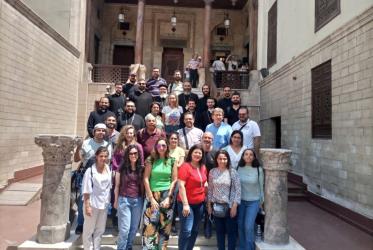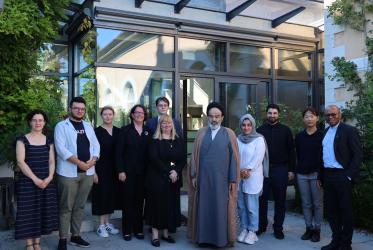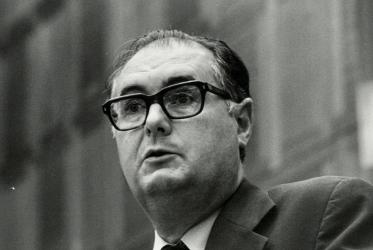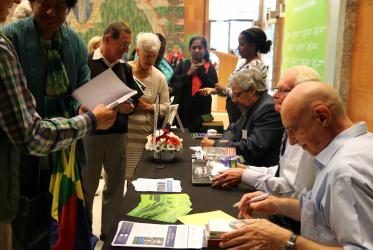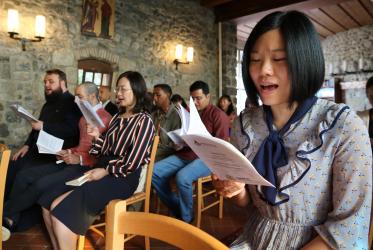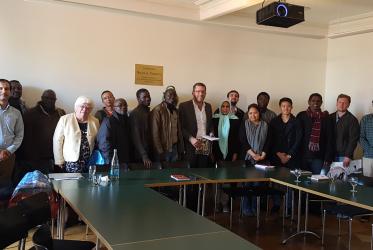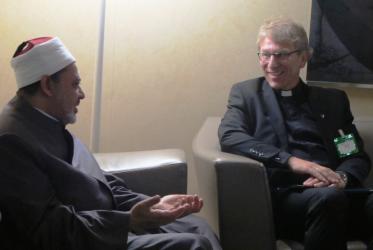Displaying 1 - 20 of 35
WCC mourns the death of Julio de Santa Ana
20 April 2023
New student body at Bossey Ecumenical Institute “a source of joy”
14 September 2020
An ecumenical pioneer’s book re-launched in English
01 October 2018
Paving the way for ecumenical studies, learning English in Bossey
24 September 2018
New students welcomed at WCC Bossey Ecumenical Institute
13 September 2018
WCC offers tribute to Marie Bassili Assaad
12 September 2018
A safe space for sinners to change and for pain to be shared
03 August 2017
Christian and Muslim promote spiritual solidarity
14 June 2017
Dialogue flourishes between WCC, Muslim Council of Elders
30 September 2016
